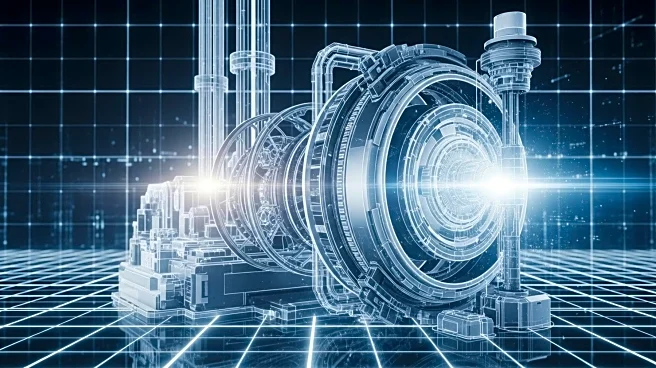What is the story about?
What's Happening?
A recent survey conducted by PwC involving over 500 U.S.-based executives from industrial sectors reveals a pressing need for companies to reinvent their operations to avoid becoming obsolete by 2035. The survey highlights that 95% of executives believe organizations must redefine their market approach rather than merely adapting to current conditions. The traditional reliance on distant offshore suppliers and siloed manufacturing systems is now seen as a liability. The survey indicates a strategic shift towards supply chain proximity and flexible, real-time adaptable operations. Notably, 49% of respondents expect fully modular systems, and 32% anticipate self-healing supply chains by 2030. Additionally, 90% of leaders are rethinking job roles, with 52% expecting AI to amplify most or all workforce roles by 2030.
Why It's Important?
The findings underscore a significant transformation in the U.S. industrial landscape, driven by technological advancements and changing global dynamics. The shift towards modular systems and AI-enhanced roles reflects a broader trend of digital transformation, which could lead to increased efficiency and innovation. Companies that fail to adapt may face extinction, impacting employment and economic stability. The emphasis on supply chain proximity could also influence domestic manufacturing and reduce dependency on international suppliers, potentially reshaping trade relationships and economic policies. This transformation presents opportunities for growth and competitiveness but also challenges in workforce adaptation and technological integration.
What's Next?
As companies begin to implement these changes, there will likely be increased investment in AI technologies and modular systems. This could lead to a demand for new skills and training programs to prepare the workforce for AI-enhanced roles. Policymakers may need to address regulatory and infrastructure challenges to support this industrial evolution. Businesses might also explore partnerships and collaborations to leverage technological advancements and optimize supply chain strategies. The transition could prompt discussions on ethical considerations surrounding AI and its impact on employment.
Beyond the Headlines
The industrial reinvention could have long-term implications for environmental sustainability, as modular systems and localized supply chains may reduce carbon footprints. Ethical considerations regarding AI's role in the workforce, such as privacy and job displacement, could become more prominent. The shift may also influence cultural perceptions of work, as AI redefines job roles and responsibilities. Companies will need to navigate these changes carefully to balance innovation with social responsibility.

















